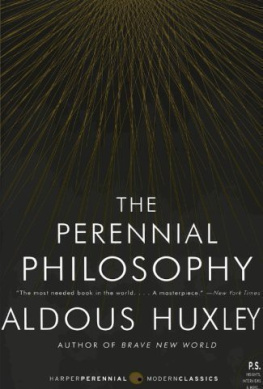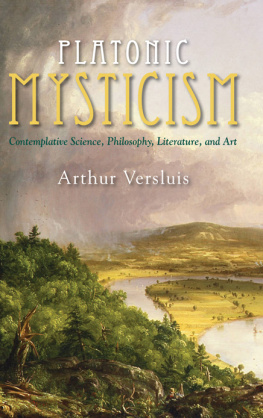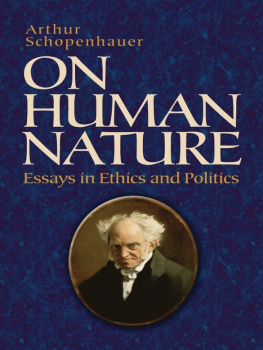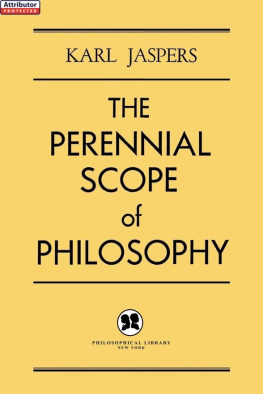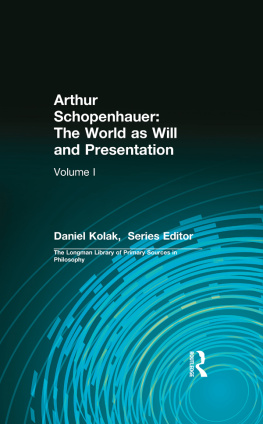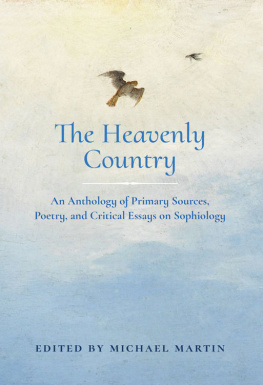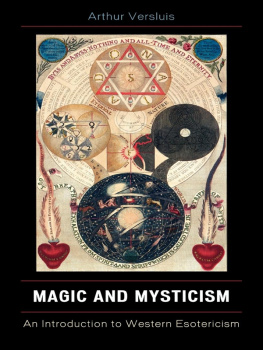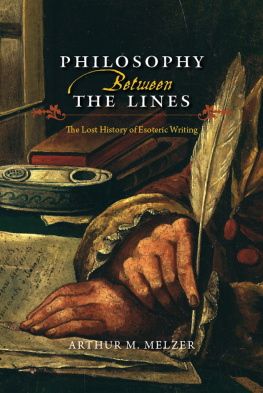Table of Contents
Perennial Philosophy
Praise for Perennial Philosophy
In this lucid explanation of perennial philosophy, Arthur Versluis reveals this traditionso often described as esoteric and inaccessibleto be closer to our interests and experience than many of us have realized. Versluis has distilled an immense amount of scholarship into this small volume, but its brevity is deceiving. Like the culmination to any alchemical work, Perennial Philosophy is a powerful tincture thatonce imbibedtransports receptive readers to a world in which they are part of a spiritual hierarchy that links heaven to earth. Arthur Versluis has distilled an immense amount of scholarship to produce a disarmingly accessible, lucid, and deeply penetrating study of the great philosophic traditions that underlie Western culture. Versluis concisely explains what perennial philosophy is and what it isnt. The clarity of his prose makes this deep book a pleasure to read. A remarkable achievement!
Gregory Shaw, author of Theurgy and the Soul: The Neoplatonism of Iamblichus
This brilliant little book, written with stunning clarity, offers an entirely new perspective on what perennial philosophy actually means and entails. This is a return to the real philosophical quest, almost entirely forgotten by the academic world: a going beyond the limited self, to experience our kinship with the greater world and the deepest levels of reality, which results in a transformation of the self and a realization of our human nature.
For anyone interested in the roots of our philosophical tradition, or what a living philosophy could look like today and in the futurea philosophy that actually inspires and fertilizes culture, art, and human experiencethis book is indispensable.
David Fideler, author of Restoring the Soul of the World and other books and essays.
This book is about transcendence: self-transcendence. It traces a pathway to such self-transcendence from Plato (Pythagoras and the Orphic mysteries), through Plotinus, Damascius, Meister Eckhart and Emerson. Perennial Philosophy unveils a contemplative way often referred to as mysticism that leads to a selfless, compassionate caring for all existence, from the animate to the inanimate, since all that exists expresses divine creation. The book has no footnotes and yet is scholarly. It records a perennial way of being-in-the-world that contrasts sharply with the way most of us live and see, and is about a past that offers glimpses of a better future. To read it is to question the contemporary understanding of who we are, and what we are capable of becoming. It is medicine for difficult times.
Robert E. Carter, Trent University, author of Encounter with Enlightenment , The Kyoto School , and many other books.
This short work is one of the most important books I have read in many years. It is also one of the bravest. The author sets out to reclaim and revivify the philosophia perennis for an era in which it is officially shunned, buried in fashionable relativisms or else usurped by obscurantists. Written in an even, steady tone without academic pretensions and with unfailing clarity, it reaffirms the enduring tenets of Platonism and sets out the case for it as a universal and timeless heritage in which a transcendent vision is paramount. The author carefully places this against the entire range of those contemporary prejudices that lock us into limited and limiting intellectual perspectives. It is a work of hope. It is a work that dares to proclaim a commitment to truth. It is a work that points the way out of the gloom of the cave. More than any other recent book it offers us a fresh start and a chance to rediscover, as T.S. Eliot described it, what is lost and found and lost again and again.
Rod Blackhirst, LaTrobe University, author of Primordial Alchemy and Modern Religion.
This book is colloquial and conversational. It presents an overview of Platonism from the master himself to Emerson in the context of contemporary debates. The author is a devoted Platonist, and his presentation of their doctrines is perfectly orthodox, above all in the absolute priority he gives to intellectual vision, the Vision of the Good. This emphasis alone is a huge achievement. The book is remarkable also for its generosity of tone. To the enlightened eye, no doubt, everything is full of Being. But it is difficult to maintain at all times that warm dispassion which takes the whole world under its wing. The author achieves this simply through the quality of his discriminations. So sharp and apt are the distinctions he makes between competing contemporary doctrines the book is continually illuminating and never tendentious. This reader was forever saying Ah!
Roger Sworder, LaTrobe University, author of Mathematical Plato, and Science and Religion in Archaic Greece as well as A Contrary History of the West .
Perennial Philosophy
Arthur Versluis
Library of Congress Cataloging-in-Publication Data
Versluis, Arthur, 1959-
Perennial philosophy / Arthur Versluis.
pages cm
ISBN 978-1-59650-016-7 (alk. paper)
1. Religion--Philosophy. 2. Philosophy and religion. 3. Transcendence (Philosophy) 4. Self--Religious aspects. 5. Mysticism. I. Title.
BL51.V475 2015
149.3--dc23
2015029412
Text set in Caslon
EPub ISBN: 978-159650-015-0
1-59650-015-8
Copyright 2015Arthur Versluis
All rights reserved. No part of this publication may be reproduced or transmitted in any form or by any means, electronic or mechanical, including photocopying, recording, or any information storage and retrieval system now known or to be invented, without permission in writing from the publisher, except by a reviewer who wishes to quote brief passages in a review.
The paper used in this publication meets the minimum requirements of ANSI/NISO Z39.48-1992 (R 1997) (Permanence of Paper).
Cover image from Tintagel courtesy of the author
New Cultures Press
Minneapolis, Minnesota
Visit us at
www.newcultures.org
Printed and bound in the United States of America.
18 17 16 15 1 2 3 4 5 6 7 8 9 10 1st
Introduction
This is a book about perennial philosophy, or philosophia perennis. Much of what is in this book always has challenged prevailing ideologiesas the death of Socrates symbolizes. Socrates, the wisest man in Athens, corrupted youths and so was sentenced to death. And perennial philosophy still challenges prevailing orthodoxies today, just as it no doubt will in the future. But that perennial philosophy is not in fashion at this or that time is not a convincing argument against it. This book presents perennial philosophy not as syncretic, or combining different faiths, but as the natural consequence of a particular kind of inward knowledge that, although it can come spontaneously, is generally the result of inward discipline and spiritual practice. In other words, this small book is both an introduction to and a handbook for perennial philosophy, which ultimately is experiential.
Perennial philosophy often has been presented in confusing ways, chiefly by attempting to make it a result of combining different religious traditions, or by claiming that there is a single religion behind or inside the different world religious traditions. But the approach of the philosophia perennis is neither of these, and although the second (the concept of a single religion behind or inside different religions) may or may not be warranted, it is simply not intrinsic to perennial philosophy, which is not a method for comparing religions anyway.
Thomas Merton wrote in his Asian Journal that We are already one. But we imagine that we are not. So what we have to recover is our original unity. What we have to be is what we are. Such a perspective goes completely against the current academic fashion, in which God is not one, as a recent book title has it. But perennial philosophy does not mean that all religions are one. Rather, it means that there is an underlying basic shared human metaphysical reality, and that is what Merton is referring to, an insight that resulted from his traveling Eastward, both literally and figuratively. Platonism and Hermetism are the model for perennial philosophy in the European tradition, and Vedanta serves an analogous role in India. Buddhism is distinctive from all of these, of course, not least because of its unique emphasis on emptiness. And perennial philosophy does not hold that all these traditions are identical, nor that they all point toward exactly the same goals or kinds of realization.


